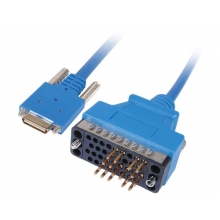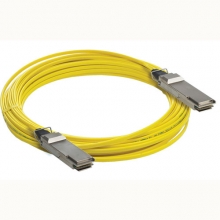- Optical Transceivers
- SFP+ Transceivers
- XENPAK Transceivers
- XFP Transceivers
- X2 Transceivers
- SFP Transceivers
- Compatible SFP
- 3Com SFP
- Alcatel-Lucent SFP
- Allied Telesis SFP
- Avaya SFP
- Brocade SFP
- Cisco SFP
- D-Link SFP
- Dell SFP
- Enterasys SFP
- Extreme SFP
- Force10 SFP
- Foundry SFP
- H3C SFP
- HP SFP
- Huawei SFP
- Intel SFP
- Juniper SFP
- Linksys SFP
- Marconi SFP
- McAfee SFP
- Netgear SFP
- Nortel SFP
- Planet SFP
- Q-logic SFP
- Redback SFP
- SMC SFP
- SUN SFP
- TRENDnet SFP
- ZYXEL SFP
- Other SFP
- FE SFP
- GE SFP
- OC3 SFP
- OC12 SFP
- OC48 SFP
- Copper SFP
- CWDM SFP
- DWDM SFP
- BIDI SFP
- Fiber Channel SFP
- Multi-Rate SFP
- SGMII SFP
- Compatible SFP
- GBIC Transceivers
- Passive Components
- Networking
- Cables
- Equipments
- Tools
- Special Offers


Proposed rules hinder plans of rural telecoms
Although their adoption remains uncertain, proposed federal rules that change a key area of funding for rural telecommunications companies already are affecting North Dakota's service providers.
The proposed rules revise the way money is distributed to telecoms from a Universal Service Fund. The fund's income comes from fees paid by telecoms and passed on to customers. Its purpose has been to assist in rural areas where providing essential telephone service is more costly.
The FCC's proposed rule changes are complicated, but the intent is to shift some of the focus from landlines to broadband.
It's an appropriate shift in today's world, said Steve Lysne, general manager at SRT Communications, Minot. The problem is that while the FCC's proposed rules encourage broadband investment in unserved areas, they fall short in not acknowledging the need for more than basic broadband in rural areas, he said. Without the funding to upgrade infrastructure, he said, rural areas will be left behind.
Just the potential for what amounts to a reduction in funding assistance is complicating the ability to borrow for current projects.
Both SRT and Northwest Communications Cooperative in Ray have sought to borrow from the Rural Utilities Service, the traditional lender for cooperatives. The cooperatives plan capital improvement projects to keep up with the region's growth.
SRT received a portion of its loan request to RUS last year. SRT is going ahead this summer with the first phase of a five-year plan to bring fiber optic cable to about 7,000 rural customers.
"But then, we are going to have to step back and re-assess. Does the five-year plan still make sense?" said Lysne.
To make another application for RUS funds, SRT will have to submit a volume of additional information to establish its eligibility, he said.
Loan money is important to SRT to upgrade its infrastructure in the rural areas and provide high-speed broadband.
"We are in such a big growth phase that we just haven't seen, probably ever. So a lot of our cash goes to funding this growth, around Minot specifically, and yet we want to get this broadband out to the rural customers. That's typically where we would borrow money and get financing," Lysne said.
Northwest Communications Cooperative applied for a $10 million loan through RUS toward a three-year project that eventually will bring fiber optic cable to homes in six of NCC's exchanges. Because of the uncertainty over how the FCC ruling will affect rural utilities in their ability to pay back loans, the RUS has placed NCC's application on hold.
That has delayed the fiber project, said Angela Schepp, NCC's business development manager. Given the lead time to order supplies and line up contractors, the project now won't happen this summer and maybe not until next year.
NCC, in the middle of the oil patch, also needs to expand its services because of the growth occurring in its territory.
The cooperative has the cash-flow to sustain some of that construction, but the halt in lending could affect future projects as the growth continues, Schepp said. NCC representatives recently were in Washington, D.C., to meet with RUS officials and explain their cooperative's situation and lay out the positive revenue potential if expansion is allowed.
"We can pay back the loan even if the FCC's ruling isn't favorable toward us," Schepp said. "When we look at the proposed rules by he FCC, we will be affected but it may not be as severely as some other telecoms."
Reservation Telephone Cooperative, Parshall, has funding in place for its seven-year fiber-to-the-home project so isn't affected by the RUS freeze on new loans. However, general manager Royce Aslakson said the proposed federal rules would have an effect.
"We are a very high-cost area to serve. Any Universal Service Fund money we lose is going to have an impact on what we can do as far as future investment," he said.
The North Dakota Association of Telecommunication Cooperatives recently released a study showing that North Dakota's rural carriers contributed $321 million to the state's economy and 1,900 direct and indirect jobs in 2010. The companies also paid $22 million in state and local taxes and $13.9 million in federal taxes, according to the study by the Quentin Burdick Center for Cooperatives at North Dakota State University.
In its worst-case scenario, the study estimated the federal rules would cause the loss of 800 jobs, $15 million in state taxes and $200 million to the state's economy. The impact of the cut could require rural residents to pay higher rates for services, and companies may defer investments in new technologies, such as high-speed fiber, to keep rates more affordable, according to the study.



















































